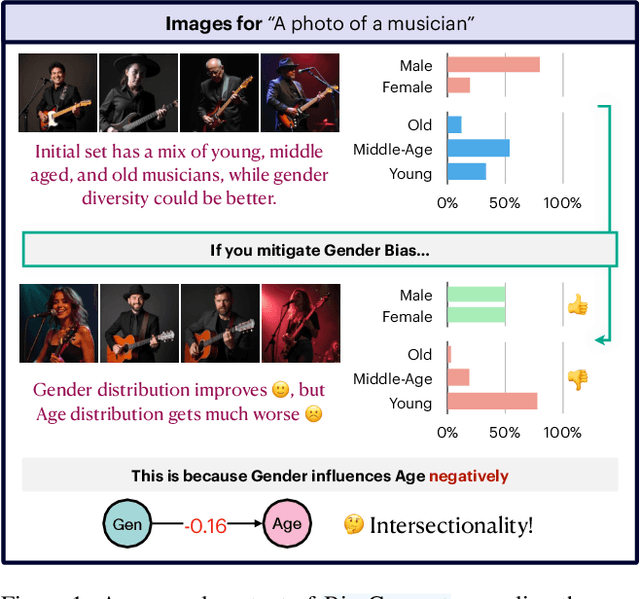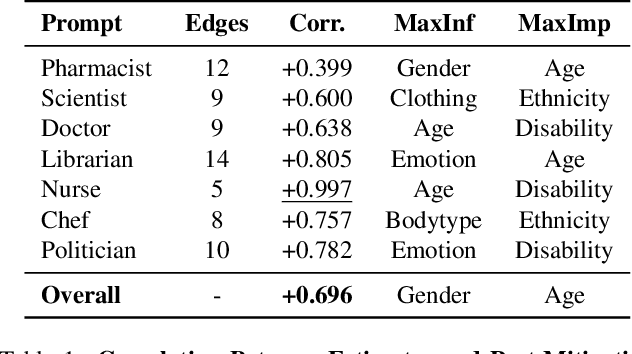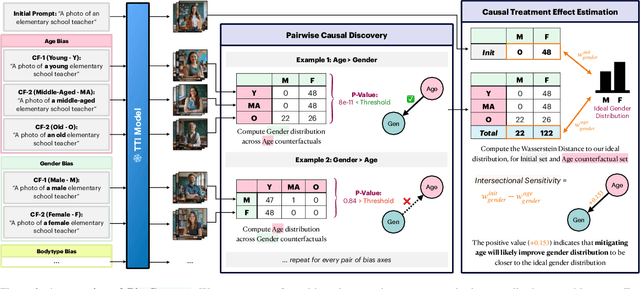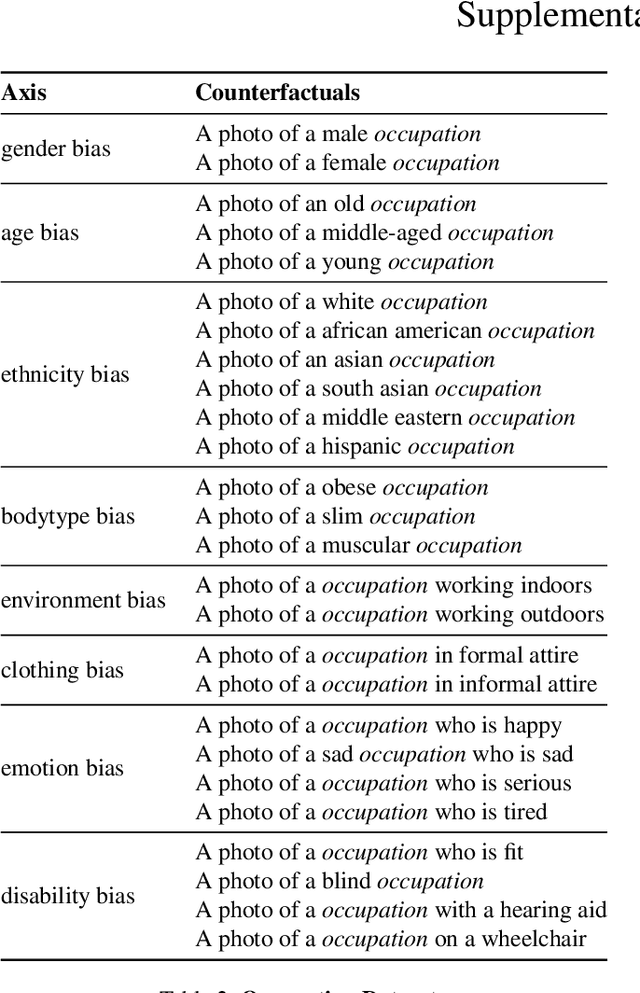Matthew A. Turk
BiasConnect: Investigating Bias Interactions in Text-to-Image Models
Mar 12, 2025



Abstract:The biases exhibited by Text-to-Image (TTI) models are often treated as if they are independent, but in reality, they may be deeply interrelated. Addressing bias along one dimension, such as ethnicity or age, can inadvertently influence another dimension, like gender, either mitigating or exacerbating existing disparities. Understanding these interdependencies is crucial for designing fairer generative models, yet measuring such effects quantitatively remains a challenge. In this paper, we aim to address these questions by introducing BiasConnect, a novel tool designed to analyze and quantify bias interactions in TTI models. Our approach leverages a counterfactual-based framework to generate pairwise causal graphs that reveals the underlying structure of bias interactions for the given text prompt. Additionally, our method provides empirical estimates that indicate how other bias dimensions shift toward or away from an ideal distribution when a given bias is modified. Our estimates have a strong correlation (+0.69) with the interdependency observations post bias mitigation. We demonstrate the utility of BiasConnect for selecting optimal bias mitigation axes, comparing different TTI models on the dependencies they learn, and understanding the amplification of intersectional societal biases in TTI models.
The 5th Recognizing Families in the Wild Data Challenge: Predicting Kinship from Faces
Nov 26, 2021



Abstract:Recognizing Families In the Wild (RFIW), held as a data challenge in conjunction with the 16th IEEE International Conference on Automatic Face and Gesture Recognition (FG), is a large-scale, multi-track visual kinship recognition evaluation. For the fifth edition of RFIW, we continue to attract scholars, bring together professionals, publish new work, and discuss prospects. In this paper, we summarize submissions for the three tasks of this year's RFIW: specifically, we review the results for kinship verification, tri-subject verification, and family member search and retrieval. We look at the RFIW problem, share current efforts, and make recommendations for promising future directions.
Recognizing Families In the Wild : The 4th Edition
Mar 09, 2020



Abstract:Recognizing Families In the Wild (RFIW): an annual large-scale, multi-track automatic kinship recognition evaluation that supports various visual kin-based problems on scales much higher than ever before. Organized in conjunction with the 15th IEEE International Conference on Automatic Face and Gesture Recognition (FG) as a Challenge, RFIW provides a platform for publishing original work and the gathering of experts for a discussion of the next steps. This paper summarizes the supported tasks (i.e., kinship verification, tri-subject verification, and search & retrieval of missing children) in the evaluation protocols, which include the practical motivation, technical background, data splits, metrics, and benchmark results. Furthermore, top submissions (i.e., leader-board stats) are listed and reviewed as a high-level analysis on the state of the problem. In the end, the purpose of this paper is to describe the 2020 RFIW challenge, end-to-end, along with forecasts in promising future directions.
 Add to Chrome
Add to Chrome Add to Firefox
Add to Firefox Add to Edge
Add to Edge